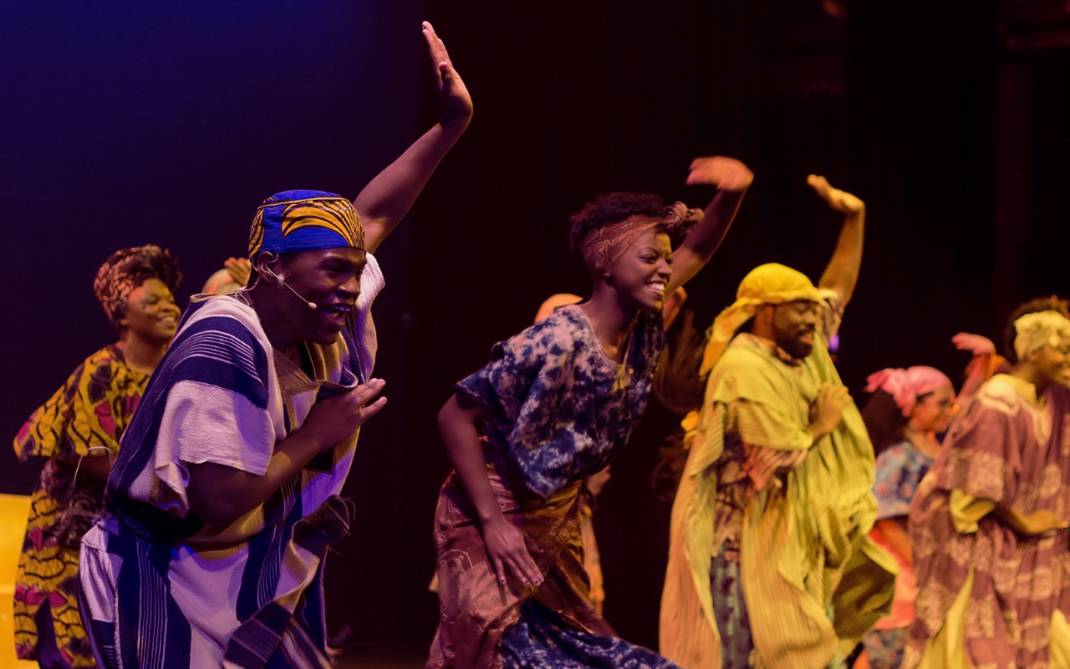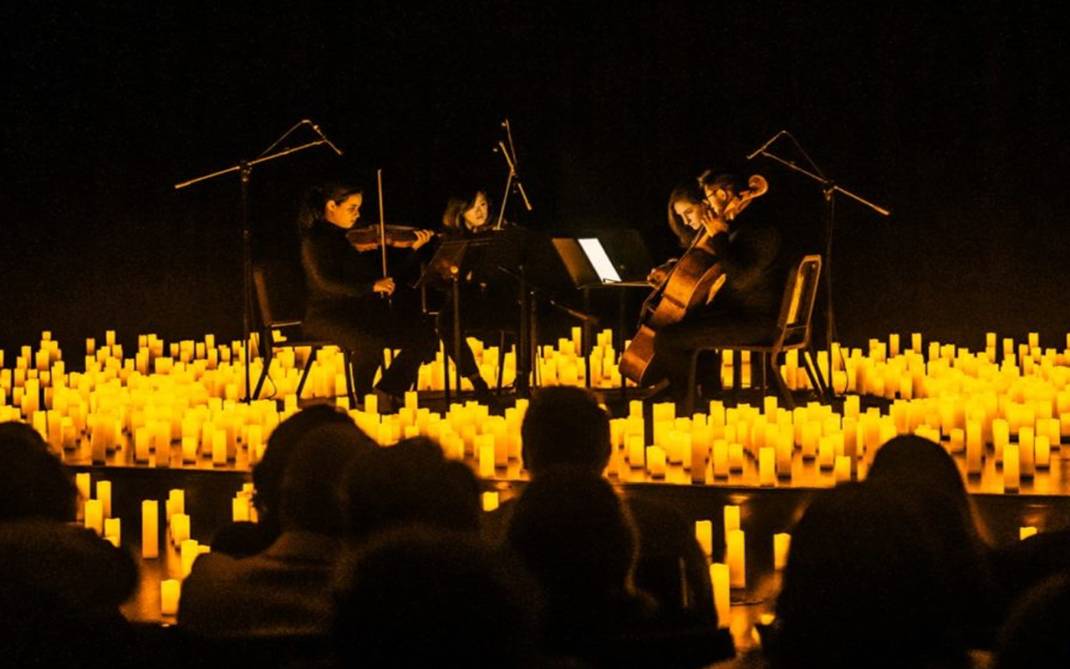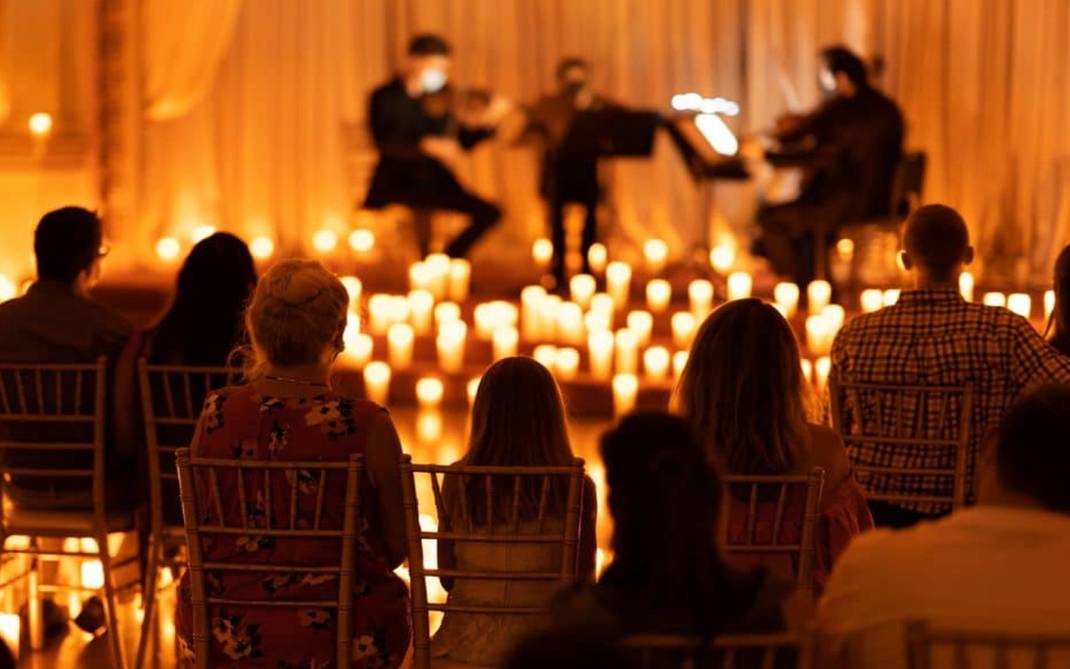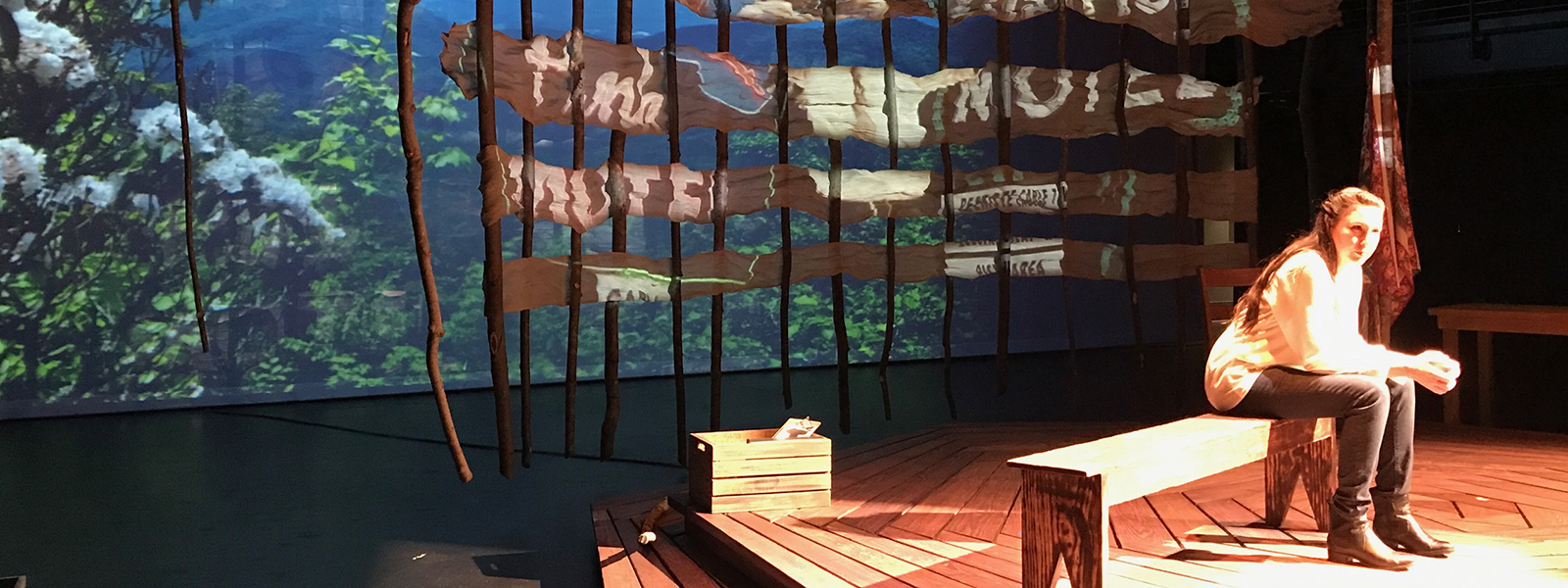Behind the scenes: “And So We Walked” — a story in need of telling — premieres in Winston-Salem
With Opening Night only a few weeks away, DeLanna Studi’s time in the rehearsal room is becoming more precious by the minute. But on this Wednesday afternoon in early April, the star of the show cannot stop the tears from flowing.
For the Cherokee actress who created “And So We Walked: An Artist’s Journey Along the Trail of Tears,” this scene is as personal as it gets. She’s just discovered the homeplace of her ancestors in western North Carolina, the land by the Hiwassee River where her family thrived generations ago, before they were forced to relocate to Oklahoma. The government later would build a dam on the old tribal land.
“Somewhere under these dark, murky waters are the remains of my family’s home … from a lifetime ago I cannot even begin to fathom. So much has been lost,” she laments before dropping out of character, tears in her eyes.
“That’s the problem,” the frustrated actress says as Assistant Stage Manager Taylor Mitchum offers up a Kleenex. “Once the floodgates open… .”
Veteran director Corey Madden understands the emotion, but encourages the actress to find a way to stay focused. “There is no question that this is still alive and painful, but ultimately as the storyteller you are obliged to push on,” she tells Studi. “You have to protect your time and your concentration so you can get through this.”
“And So We Walked,” the inspiring story of a contemporary Cherokee woman who embarks on a six-week, 900-mile journey along the Trail of Tears to understand her own identity and the conflicts of her nation, premieres in North Carolina on April 22 at Hanesbrands Theatre in Winston-Salem. The new, one-woman show runs though April 30 and is presented by Triad Stage, with key support from the Thomas S. Kenan Institute for the Arts at the University of North Carolina School of the Arts and other partners.
See "And So We Walked"Tickets for UNCSA students, faculty, and staff are free during the first week of the
production (April 19-April 25). Simply present your ID at the Box Office to redeem
this offer. Come support the work of TSKIA and the all-UNCSA design team - John Coyne,
Andja Budincich, Norman Coates, Bruno Louchouarn, and Mary Irwin!
Tickets will be $10 at the door with a UNCSA ID for performances April 26–30.
For tickets, visit TriadStage.org or call (336) 272-0160.
|
One reason the actress has such an emotional reaction to scenes like this is because she has experienced them in first person. On a Kenan-funded research expedition nearly three years ago, in July 2014, she and Madden discovered Studi’s ancestral homestead on government maps archived at the Museum of the Cherokee Indian. When the two women visited the spot by the river in Murphy, North Carolina, that was the moment they knew they had a story to tell.
The next summer, Studi started the journey to retrace the path her great-great grandparents took in the 1830s during the forced relocation of more than 17,000 Cherokee. By her side were a documentarian and her father Thomas, a full-blooded Cherokee who helped by interviewing tribal culture bearers in their native tongue. Madden, the Executive Director of the Kenan Institute and an award-winning writer, director and producer, joined the team whenever she could.
The result is a powerful, multi-faceted dramatic memoir that draws on their experiences and historical research to convey the complexities and conflicts with which the Cherokee wrestle. It was developed in close collaboration with individuals and institutions within the Eastern Band of Cherokee Indians and the Cherokee Nation, as well as with the support of Native Voices Theatre, the American Indian Center and Process Series at UNC-Chapel Hill.
And now, Studi’s intimate yet communal journey of loss and renewal is nearly ready for the stage. The question: Is she?
“I have moments when I say, ‘Oh my God, this is going to happen,’ with excitement, and moments when I say, ‘Oh my God, this is going to happen,’ with doom and dread. Usually in the same breath,” she said with a laugh.
I felt very empowered by going on this walk. It has given me ownership of a story that has always been told to me, usually by an outside source, and I have claimed it.
DeLanna Studi
“But honestly, there is nothing I can’t do. I felt very empowered by going on this walk. It has given me ownership of a story that has always been told to me, usually by an outside source, and I have claimed it.”
Studi’s journey as a first-time playwright began in 2013 when she met Madden while working on another play in L.A. Over dinner one night, the actress talked about her dream of one day walking the Trail of Tears with her father and finding a way to share their experiences with audiences around the country. Shortly thereafter, Madden joined the Kenan Institute and suggested the partnership that led to “And So We Walked.”
“Corey believed in me when I didn’t believe in myself. When I was writing this piece I put up a lot of resistance. This piece was not going to be about my story, it was going to be about all the people I met along the way,” Studi said.
Madden had other ideas. “Corey dragged me kicking and screaming to my own story. She made me go to those dark and scary places, but at the same time she was there to support me.”
At last count, Studi portrays 30 characters in the piece; some are family members and real people she met along the journey, others are composites inspired by more than one person. In the weeks leading up to the premiere, the actress worked closely with Mary Irwin, a voice and speech professor in the School of Drama at UNCSA, to prepare for the show.
“When you are on stage by yourself, it takes tremendous vocal and physical stamina,” Irwin said. “We are on our feet finding the vocal and the physical lives of all these various people — the way an individual speaks and what makes them different from another person.”
Seeing her dream project coming to life on the stage feels surreal to Studi. “At times I feel like I am still in a dream. Our production team has some of the most amazing designers in the country working on how to bring my show to life. I go to these meetings where they show me the drawings and the projections and models of the stage and the costume pieces. It is a dream come true. I almost feel like Cinderella.”
Among the production team are two esteemed artists from UNCSA’s School of Design and Production — John Coyne, Director of Scene Design, and Norman Coates, Director of Lighting. Neither knew a great deal about the subject of Studi’s work before joining the team. So they took a trip to the town of Cherokee to educate themselves.
Coyne called that trip the “turning point” in understanding the context of the show and providing inspiration for his design, which incorporates the first two rows of seating on stage in a way that echoes the traditional Cherokee Council House.
“When you go to Cherokee you really feel you are in something, something that surrounds you — the mountains and the woods and the culture and the heritage of it — that was a sensibility we wanted to achieve,” Coyne explained.
“I am very excited by it. It is very simple, but I hope people will take away something about the Cherokee culture that they didn’t know before. It’s kind of like my own journey of learning more about this story and about the Cherokee people — I hope that is what others will experience as well.”
Authenticity was equally as important to Coates as he sought visual images and created lighting that would complement the story without overwhelming it.
“Frankly, after watching DeLanna read it on the flat screen — we actually did a reading by Skype — the piece is very moving when she just tells the story alone, without my help,” Coates said. “Anything I add, I just don’t want it to get in the way.”
Indeed, everyone involved with the show believes it is an important story that simply had to be told.
That’s what artists do. We try to take something that has power in it, pain in it, and we explore it and we share it. And sometimes that has a profound effect on people ... This piece is made from the heart. And that is what we need more of now.
Corey Madden
“That’s what artists do. We try to take something that has power in it, pain in it, and we explore it and we share it. And sometimes that has a profound effect on people,” Madden said. “I would argue this work is as good as you would find anywhere and it will go all over the country. This piece is made from the heart. And that is what we need more of now.
“Winston-Salem is the perfect place to host the show’s premiere,” Madden said, not only because of the reservoir of world-class talent at UNCSA.
“We get to make our work in this community that has nurtured and protected and supported the activity of being an artist for 50 years. I am deeply grateful to the people who are interested in the work that we did to try and answer some profound questions.”
Madden also is grateful that Preston Lane, the founding artistic director of Triad Stage and UNCSA alum, said yes to staging the new work before Studi had even completed a draft.
“I’ve been making new work for 30 years, and I’ve learned that all new work looks too risky at the beginning. You have to find a path to people who say yes to your project despite the fact it looks risky. Preston’s devotion to Southern writing and North Carolina stories is a big part of why this piece is happening here.”
Neither Madden nor Studi can believe opening night is just around the corner.
“I feel like it’s such a celebration,” Madden said. “It’s such a win for saying yes, it’s such a win for having a dream project, it’s such a win for the power of theatre and storytelling. I feel very proud the Kenan Institute is involved in a social practice project like this.”
The play already is scheduled for a run at Portland Center Stage in Oregon next spring. And after that, who knows?
“I was telling Corey this the other day. As an actress, you are always waiting around for someone to say yes to you — you go in for an audition and you are always waiting for the callback,” Studi said. “As a playwright, I am not waiting around for anyone to write a role for me. I am giving myself the yes. I am telling the stories that mean something to me, and the stories I know aren’t being told.”
Get Your Tickets
April 18, 2017



